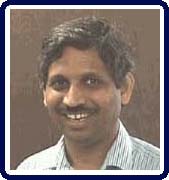|
Report authored by: Arjuna rao, Chavala
In Business week dated 28 Aug 2000, a contrasting account of how the
corporations changed over a century was provided. The organisation of the
20th century was like a pyramid, while the 21st century organisation is
more like a web or network.  The focus of the company changed from
internal to external. These and other changes brought forth a critical need
for talent management for the corporations to succeed. Even in India,
companies are coming under tremendous pressure to manage their
talented resources, in view of the changing context. There is lot of
integration between Indian companies and US operations. Indian
companies are no different from the American companies in the silicon
valley. More executives are of younger age. There are increased pressures
and responsibilities. There is a clear need for developing mature leadership
for business growth. In these circumstances, it is important to ask
ourselves, what is the appropriate measure for retaining talent. Is it loyalty?
Is it competence? Is it character? Dr Prasad Kaipa, in his two hour lecture
and Q&A session, brought out the critical factors to be looked into.
The focus of the company changed from
internal to external. These and other changes brought forth a critical need
for talent management for the corporations to succeed. Even in India,
companies are coming under tremendous pressure to manage their
talented resources, in view of the changing context. There is lot of
integration between Indian companies and US operations. Indian
companies are no different from the American companies in the silicon
valley. More executives are of younger age. There are increased pressures
and responsibilities. There is a clear need for developing mature leadership
for business growth. In these circumstances, it is important to ask
ourselves, what is the appropriate measure for retaining talent. Is it loyalty?
Is it competence? Is it character? Dr Prasad Kaipa, in his two hour lecture
and Q&A session, brought out the critical factors to be looked into.
He outlines the competencies for the new economy for knowledge
workers, leaders and for organisations. Salient points are listed below.
Competencies for the new economy for the Knowledge worker
- Behaviour + Performance
-Vulnerability/Openness ( It is better not be an expert in everything but to
demonstrate an attitude of learning and developing competency)
- Fail quickly
-Quick and Non linear growth
-Competence Vs Maturity
-EQ
-Design your life and achieve a balance between your work and life
Competencies for the new economy for the Leaders
-Attracting, retaining, motivating talent
-Flexibility, Mass customisation (Do not quote policies. Find out what can
be done before you say, what can't be done. With this approach, resources
will stick with you a little longer)
-Best practises(CMM, ISO 9000) Vs Next practises
-Need for adaptation and change
Competencies for the new economy for organisations
-Rethink organisation structure
-Speed of communication and diverse ways of communication
(pictures,songs)
-Information is not power
-Democracy of decision making (Top people only know 25% of
information but make 75% of decisions)
-Knowledge creation
-Deep belief in others
-Business change --flexible and dynamic
Keys to talent management
-Create an environment with high degree of trust, little fear of making
mistakes, a motivated sense of purpose with clarity of goals and high
regard for individual & collective collaboration
-Talent is retained in relationships
-It is through language that we coordinate our actions and create
knowledge.
Q&A session
An interesting Q&A session followed the lecture. Responding to a
question of how to retain people as they leave after getting training, Dr
Prasad Kaipa said that there is no easy answer. In these days of at will
contract of employment, it is difficult to blame the employees and ask them
to be loyal, when the organisations can fire them at will. S Nagarajan, said
that the proportion of people who leave like that is generally too small to be
alarmed. Dr Prasad said that in his organisation Selfcorp, he asks engineers
to spend only 1/3 of time coding and the rest 2/3 in documenting, training
others.
Another interesting question was on how to achieve a balance in the
current requirement of longer working hours. He said that though tele
commuting has been initiated in US, it is not considered successful.
People have to think of their children, and whether they are able to bring
them up properly. One more way to approach is to see how we can work
intelligently. While 7% of effort is taken up by idea generation, strategy,
93% of effort is required for the grunt work that is implementation.
To some other questions, he clarified that leader becoming a cult in his
own organisation is detrimental to the organisation. He said that in the
current environment, loyalty may be towards Knowledge and the work
rather than the workplace. By working on a career plan for the
empolyees,which achieves alignment between individual and organisation
and supporting them in implementation, talent can be managed better.
A copy of Dr Prasad Kaipa's presentation in zipped power point format is available for download.
---
|